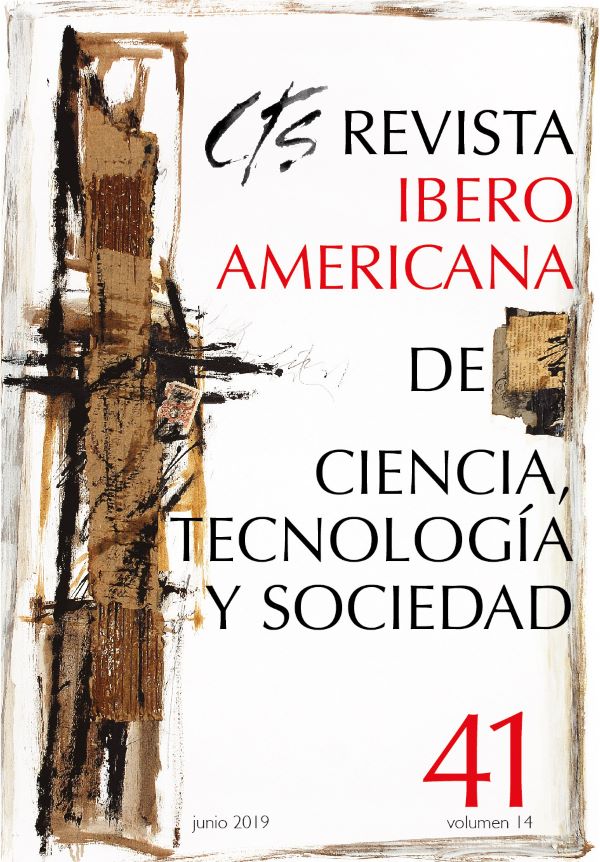Critical Studies on Algorithms: A Meeting Point between Engineering and the Social Sciences?
Keywords:
algorithms, social sciences, engineering, researchAbstract
We are in the Era of the Algorithm or, as is pointed out by some experts, in an “algocracy” where math and computer sciences are becoming a powerful mechanism that influences and guides our behavior and the governance of society. This “algocracy”, beyond our vision or will for action, more and more conditions our existence. In addition, its increasing use, while providing us with a powerful tool for knowledge, also restricts, manipulates, controls, and provokes us, at times in a benign way and at others in a riskier and more problematic one. At present, our perception confuses its effectiveness and legitimacy. Engineering and the social sciences have a common field of work and dialogue to face the new social challenges presented by the digital society. This paper describes and identifies some lynchpins that are set forth in critical studies on algorithms, their fundamental properties and social, ethical, political and legal issues, which are produced or reinforced by their use, as well as the most suitable social science methodologies to analyze them.Downloads
References
BAROCAS S., HOOD, S. y ZIEWITZ, M. (2013): “Governing algorithms: A provocation piece”. Disponible en: http://governingalgorithms.org/resources/provocation-piece/. Consultado el 5 de marzo de 2018.
BURRELL, J. (2016): “How the Machine ‘Thinks:’ Understanding Opacity in Machine Learning Algorithms”, Big Data & Society, vol. 3, n° 1.
CITRON D., PASQUALE, F. (2014): “The scored society: Due process for automated predictions”, Washington Law Review, pp. 86-101.
DANAHER, J., HOGAN, M., NOONE, C. y otros, (2017): “Algorithmic governance: Developing a research agenda through the power of collective intelligence”, Big Data & Society, julio y diciembre, pp. 1-21.
DOMINGOS, P. (2012): “A few useful things to know about machine learning”, Communications of the ACM 55, nº 10, pp. 35-78.
FLUSSER, V. (2017): El universo de las imágenes técnicas. Elogio de la superficialidad, Buenos Aires, Caja Negra Editora.
KITCHIN, R. (2017): “Thinking critically about and researching algorithms”, Information, Communication & Society, vol. 20, nº 1, pp. 14-29.
MACKENZIE, A. (2007): “Protocols and the irreducible traces of embodiment: The Viterbi algorithm and the mosaic of machine time”, en R. Hassan y R. E. Purser (eds.): Time and temporality in the network society, Stanford, Stanford University Press, pp. 89-106.
PASQUALE, F. (2015): The Black Box Society: The Secret Algorithms that Control Money and Information”, Cambridge, Harvard University Press.
SEAVER, N (2017): “Algorithms as culture: Some tactics for the ethnography of algorithmic systems”, Big Data & Society, julio y diciembre, pp. 1-12.
ZARZKY T. (2016): “The trouble with algorithmic decisions: An analytic road map to examine efficiency and fairness in automated and opaque decision making”, Science, Technology & Human Values, nº 41, pp.118-132.
Downloads
Published
How to Cite
Issue
Section
License
All CTS's issues and academic articles are under a CC-BY license.
Since 2007, CTS has provided open and free access to all its contents, including the complete archive of its quarterly edition and the different products presented in its electronic platform. This decision is based on the belief that offering free access to published materials helps to build a greater and better exchange of knowledge.
In turn, for the quarterly edition, CTS allows institutional and thematic repositories, as well as personal web pages, to self-archive articles in their post-print or editorial version, immediately after the publication of the final version of each issue and under the condition that a link to the original source will be incorporated into the self-archive.











